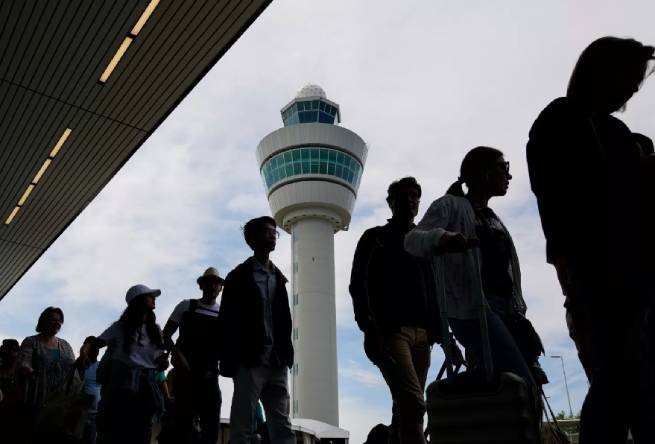In the fall of 2024, the European Union plans to introduce the entry/exit system, or EES, a new passenger screening system. However, experts warn about the risks.
They consider it unfinished, capable of causing queues of passengers and refusal to buy last-minute tickets, tells Euronews Travel.
The new automated passenger verification will rely on biometric data – fingerprints, face scans and passport data. Visitors to the European Union will have all this data collected upon their first entry after the introduction of the system. Under the new rules, passengers from outside the bloc must go through the EES system, which will replace the passport stamp for travelers from countries outside the bloc. EUwho do not need a visa.
Airlines have warned that the launch of EES could have a noticeable impact on travelers – such as stopping last-minute bookings. Why? Currently, passengers must provide certain information before flying – name, passport number and date of birth. This is so-called API information (Advanced Passenger Information). With the introduction of EES, the request for personal data may become more detailed.
In addition, airlines will have to obtain permission to fly passengers, this will have to be done 48 hours before departure – enter API information into the new system so that it gives consent (or refusal) for boarding. Airlines will be fined if they allow passengers who do not meet EES requirements to board.
The parent company of low-cost carriers Ryanair, Buzz, Lauda Europe and Malta Air fears the new rules will put an end to last-minute ticket sales. In a document submitted in December to the European Audit Committee of the British House of Commons, she complains about the timing of the review, which she estimates “rules out last-minute ticket sales.”
Airlines have warned of other problems including longer wait times at border controls and a lack of support if something goes wrong during the introduction of EES. Industry group Airlines for Europe (A4E) warns:
“We remain deeply concerned that there remain unresolved issues that will prevent the smooth implementation of the EES. We identified potential issues months ago, but progress in resolving them has been slow.”
In May, a group of industry associations, including A4E and IATA, sent a joint letter to Ylva Johansson, the European Commissioner for Home Affairs. It outlines the main concerns about the introduction of the system:
- lack of information campaigns for passengers;
- inconsistent and delayed national tests of the new system;
- delays in the implementation of pre-registration and the lack of a plan B in case countries are not sufficiently prepared.
A study conducted in the UK in April showed that two thirds of citizens had not heard about the upcoming innovation at all. The increase in border control times is also a cause for concern. According to some forecasts, it will increase by 30-50%. The EU said it did not expect significant delays at airports, adding that capturing passengers' biometric data would take between 90 seconds and two minutes per person.
EES was originally scheduled to launch in May 2022, but has already been delayed several times. Now the plans include “autumn”, but the official date has not yet been set. The report notes:
“The Commission must speed up preparations to have any hope of a smooth implementation of the EES. This will require close coordination with member states, airlines and airports to ensure they and passengers have sufficient support.”







More Stories
In the US, there is outrage over the decision of J. Biden and C. Harris to donate… $750 to hurricane victims "Helen"
S. Balaskas about the gypsies: “We will bring them blood, we will enter their houses”
Greeks lost more than 40 billion euros to banks